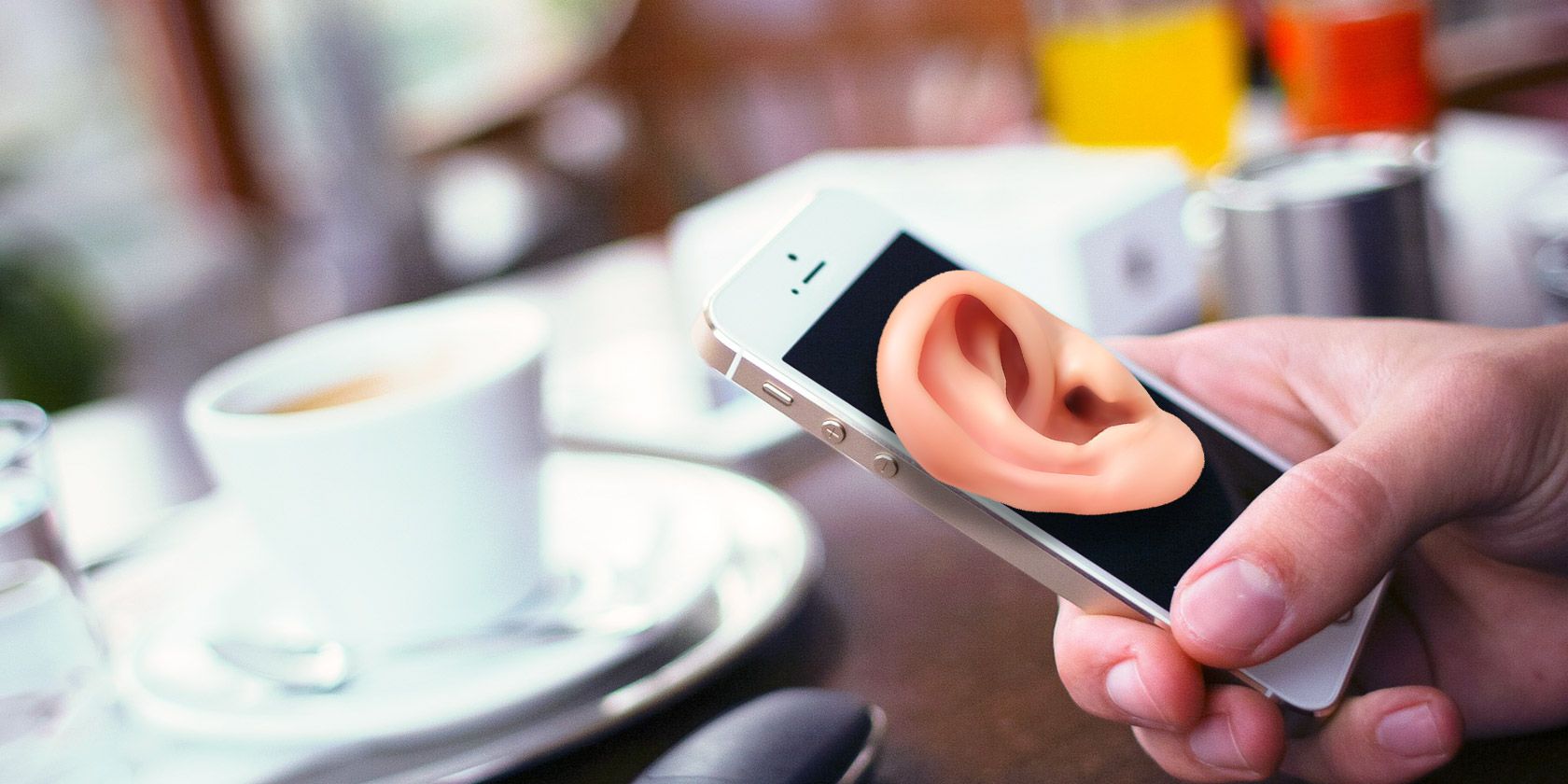
Ever wondered if your phone is listening to your conversations? Spotted personalized adverts for TV shows, movies, or objects that you know you haven’t searched for?
What is going on?
Let’s consider the evidence and try to work out whether surveillance-driven advertising is really taking place, or if it is really nothing more than good, old-fashioned, coincidence.
Is Your Phone Listening to You?
Various users across the web have claimed that something fishy is going on with their phones. They believe that smartphone microphones are being used to record what they say, with the information used to better target personalized Google ads on websites and Facebook.
This is mostly found on older Android phones, typically running Android 7.0 Nougat and earlier.
It sounds unlikely, but the anecdotal evidence is quite compelling. BBC Technology Report Zoe Kleinman reports an occasion when she learned of a friend’s death in tragic circumstances, only to find that her friend’s name, the accident, location and year were in the Google search box on her phone.
Reddit Users Think Their Phones Are Listening
Stories on Reddit expand further, such as this from hawk8177:
“i was talking to a friend about a med he takes, next day im getting ads about that med… i asked a friend something about the best way to defog car windows… the next day when i open youtube the very first suggestion for me to watch was how to defog windows!”
Here’s another, from Redditor karlrocks23:
“My SO and I were having a chat and I was telling her about a new Nespresso shop that opened up in the city and how nicely designed it was. I don’t like coffee that much, and I’ve never even tried Nespresso. That is the only time I can remember having a conversation about Nespresso to anyone and I’ve certainly never Googled it or anything.
The next day, all my ads on chrome were about Nespresso.. I have no issues with ads popping up related to things I’ve searched by voice or type. But it did feel a bit invasive being constantly listened to and for private conversations to be used as a means to target ads at me.”
You’ll find many similar stories on Reddit and beyond. Check this account of a user noticing Google ads for everything he discussed with his wife for more.
Is My Smartphone Really Listening to Me?
A while ago, I noticed a similarity between Google Now recommendations and news updates, and the shows I’d recently watched. Keen to avoid spoilers, I had resisted searching for anything about the programs, so it was a surprise to see them listed.
A few days later, I’d forgotten about this, until I noticed that after leaving my phone at my parents’ house, a bunch of new shows appeared in Google Now, along with the legend “Because of your interest in this show.”

You’ll see two examples above: on the left, Fireman Sam, which often played on TV not far from my phone. On the right, British TV drama Heartbeat, selected because it was “Similar to Coronation Street”. This is a show watched in our house, but not Googled by me.
Since this happened, Google Now has evolved. It no longer offers this sort of recommendation, however the possibility of technology being used to target customers based on their conversations is concerning. Ensuring your Android permissions don’t give apps access to your phone’s mic is a good idea.
It does seem as though this is something more than coincidence. After all, proving that smartphone mics are collecting data to target content at users is tricky.
Can You Prove If an App Is Listening to You?
Could apps steal data captured through your smartphone’s microphone? To prove it, in 2016 cybersecurity experts Ken Munro and David Lodge from Pen Test Partners developed an app. Its aim is to record what was being said in the vicinity of a phone and display it on a monitor.
As Munro explained to the BBC, “All we did was use the existing functionality of Google Android—we chose it because it was a little easier for us to develop in.”
“We gave ourselves permission to use the microphone on the phone, set up a listening server on the internet, and everything that microphone heard on that phone, wherever it was in the world, came to us and we could then have sent back customized ads.”
David Lodge explained that the code was largely available within the host OS or in the public domain. The experiment was achieved with minimal battery drain on the device.
Google “Categorically” Rejects Accusations
Google and Facebook have both denied that their apps can use smartphone microphones to gather information in this way.
Facebook told the BBC that it blocks brands from advertising based on microphone data. Meanwhile, Google claims “categorically” that it does not use any “utterances” from when the OK Google hotword is used, or share them with third parties.
Additionally, app developers must adhere to the Google developer policy. This specifies that apps do not breach privacy by using recordings from OK Google.
So, what is going on? Are devices listening in? Well, we know that Google does record you, just as we know that Amazon does, via the Amazon Echo. But is the information is used for commercial purposes?
Enhancements in mobile device privacy seem to have put an end to this sort of privacy breach. If you’re using a recent version of Android, it’s unlikely that you’ll be affected by this. However, you should inspect your Android permissions to ensure apps don’t have access to your microphone without good reason.
Concerned? Here’s how to check and delete your Google history of audio recordings.
Read the full article: Is Your Smartphone Listening to You? (Or Is It Just Coincidence?)
Read Full Article
No comments:
Post a Comment